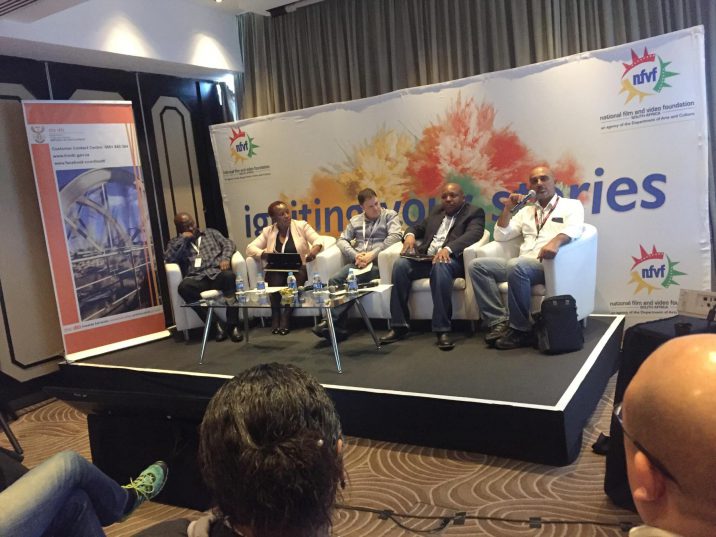By Dipo Olowookere
South Africa’s Department of Trade and Industry (the dti) has disclosed that it would have spent R100 million (about $7.7 million) to support emerging black filmmakers through its Emerging Black Filmmakers Incentive by the end of March 2018.
This was announced by the Director of Film Production at the dti, Ms Nelly Molokoane, at the Emerging Black Filmmakers Workshop at the Durban International Film Festival (DIFF). The workshop was targeted at emerging film producers who want to access the incentives scheme.
According to Ms Molokoane, since its launch, the Incentive scheme has managed to support 40 projects of emerging filmmakers as part of the R100 million budget, but in terms of finalising those projects and productions, producers still find it difficult accessing additional funds to close their projects due to financial constraints.
She said the dti has now partnered with the Industrial Development Cooperation, National Film and Video Foundation, South African Broadcasting Corporation and provincial film commissions to assist filmmakers.
“The scale of projects has been increasing since the inception of the scheme in 2014. The department approved 15 applications thereafter it increased to 40 over a period of three years.
“Partnership with these institutions will yield positive results in the near future and we will see more productions being supported. We are planning to host intense workshops in various provinces to assist filmmakers access this support,” said Ms Molokoane.
She adds that the workshop at the Durban International Film Festival (DIFF) was in essence hosted to assist those that needed training on the incentive scheme and, guidelines. It also aimed at educating producers on crucial information needed by the dti if one wants to access the funding.
The Director of the Marikana documentary Miners Shot Down, Mr Rehad Desai who is also a beneficiary of the incentive said the scheme was the most singly important development for the South African film industry in that it allows producers to go out into the country, continent and the wider world as equal partners with other producers.
“We are seeing far more films being produced since the launch of the scheme and this means funding of projects happens in a lot short space of time and one can go into production quicker. This also means our production companies are becoming sustainable but the incentive can be made more accessible as some of the costs are regarded as non-qualifying and this affects the production qualification,” said Desai
DIFF is an annual film festival that takes place in Durban, KwaZulu-Natal. It is one of the oldest and largest film festivals in Southern Africa and presents over 200 screenings celebrating the best in South Africa, African and international cinema.

